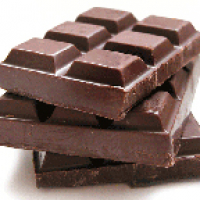
Last year’s global media frenzy over a now notorious study that found eating chocolate can make you thin tells us much about contemporary health reporting and its more alarming shortcomings. Devised by science journalist John Bohannon, the controversial hoax exposed just how easy it was for a fictitious health institute to turn selective study findings into a headline-grabbing diet discovery that was eagerly embraced by copy-hungry journalists and chocolate fans alike. For example, the article pictured left gives a taste of the media's collective enthusiasm of the study.
‘This is one of the more extraordinary examples of the media taking so-called health evidence and organisations at face value, which happens all the time,’ says Cochrane Co-Chair Lisa Bero. ‘Sponsored science, conflicted experts, cycles of bias, skewed figures and selective reporting of findings are just some of the issues journalists need to be aware of if health reporting is to be accurate rather than misleading. The crucial issue here is one of education and providing journalists with tools to investigate conflicts of interest. Cochrane has an important role to play here in helping journalists begin to navigate, analyse, understand and evaluate health data both for their own professional benefit and for the collective good. If we want people to have access to the best in health evidence, we need to help them discover how and where to look for it.’
To this end, late last year Lisa teamed up with award-winning journalist and public health academic Ray Moynihan to run a practical workshop designed specifically for Australian journalists, bloggers and freelance writers. The half-day interactive course covered a broad range of topics and current health reporting issues, with a strong focus on conflicts of interest and the judicious use of high quality health evidence.
‘As a former ABC journalist who spent over two decades reporting on complex health issues, debates and hidden agendas, I know the kinds of issues and obstacles journalists can come up against,’ says Ray. ‘It’s important they understand that reporting on conflicts of interest is an essential part of good journalism. Our workshop was designed to provide the practical tips and tools journalists need to conduct more thorough investigations, file better reports and ultimately, provide more credible and trustworthy health information for the public.’
Workshop participants were keen to explore and discuss the inherent challenges and rewards of looking beneath the health story surface. Croakey contributor and freelance journalist Marie McInerney found the session valuable. ‘For me it really highlighted that conflicts of interest are an 'essential fact' that all journalists should consider with any story,’ she says. ‘It was particularly helpful for freelancers, who rarely get the chance for formal professional development. It was such a good workshop, I wish it had been a full year course!’
While a year-long course might be some way off, there are plans afoot to run another half-day workshop at the Charles Perkins Centre in Sydney later this year. Keep an eye on our twitter feed for dates and details or email shauna.hurley@monash.edu to register your interest.
